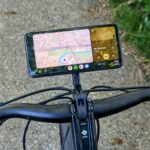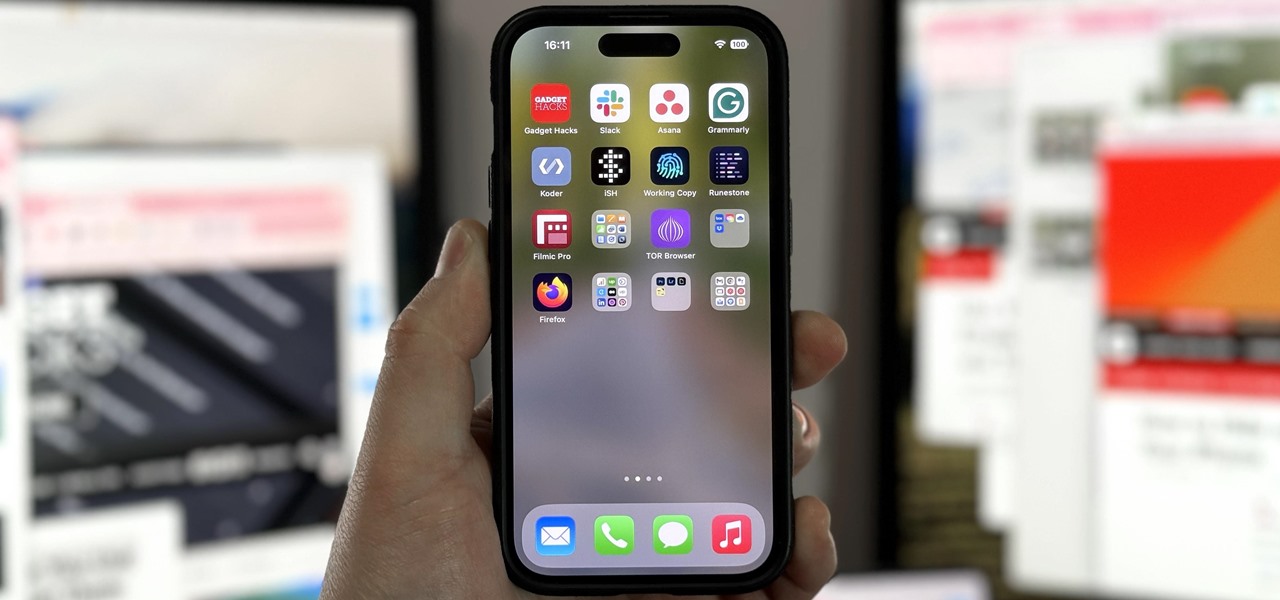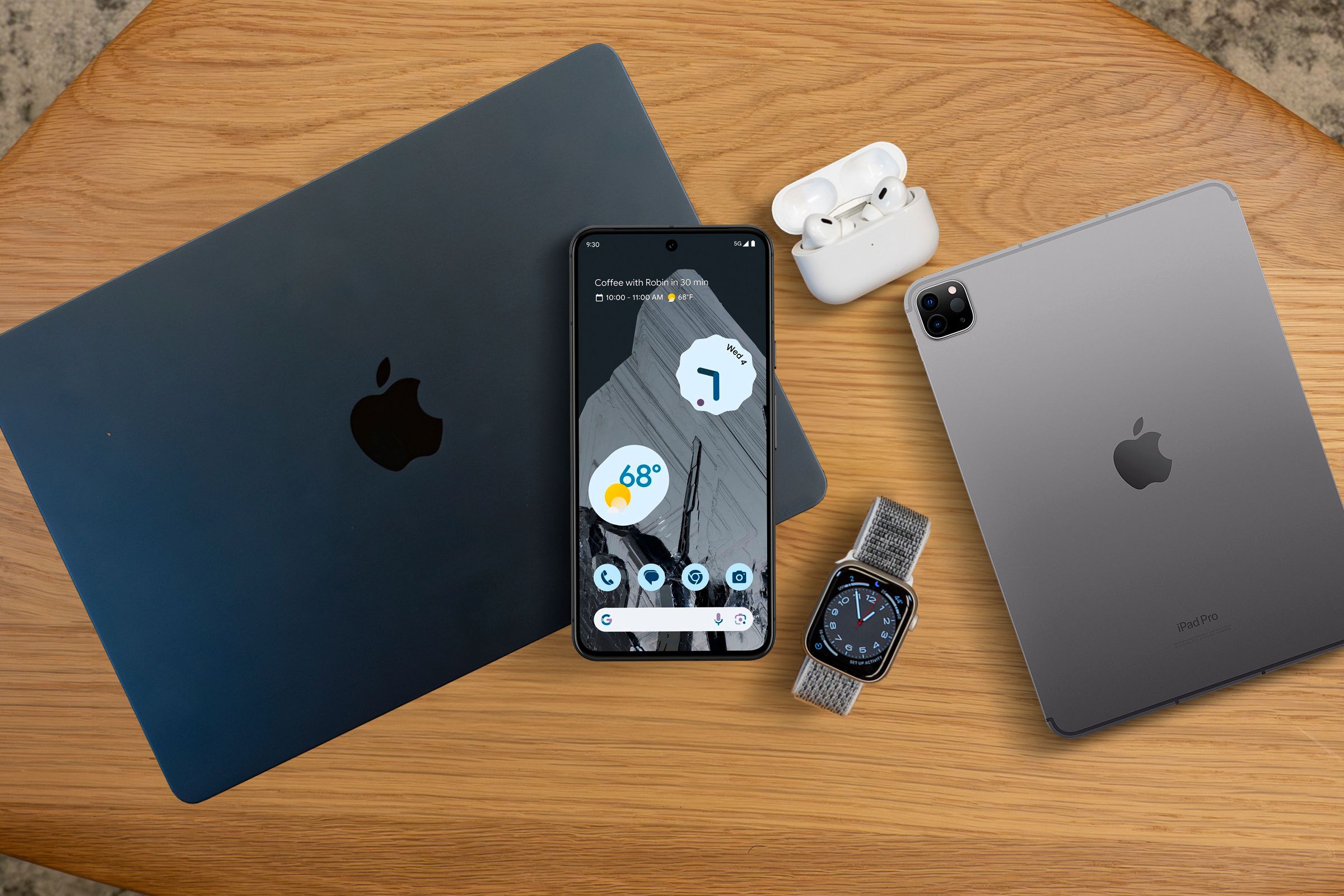Why I Want an E-Ink Smartphone
Android Phones & Tablets
Key Takeaways
- E-ink screens can feel easier on the eyes due to the lack of a backlight, external light dependency, and optional front lighting.
- E-ink devices may promote healthier phone habits by decreasing streaming and promoting reading.
- E-ink screens provide a less distracting interface, simulate writing on paper, and can extend battery life on smartphones.
E-readers have shown us the appeal of e-ink screens. The Light Phone 2 crammed this eye-friendly display technology into a phone. I want to see this technology come to smartphones. Let me tell you why.
Easier on the Eyes
I have carried around a Light Phone 2 for years. I loved the look of that tiny, credit-card sized phone with its minimal e-ink display. After a while, I returned to using a smartphone, but I wish that choice didn’t mean having to give up e-ink.
In other parts of the world, it doesn’t. There is a line of Hisense e-ink smartphones released in China. You can try running them elsewhere, but they don’t work well in the States. If these phones were available here, I would likely have bought one.
I find e-ink feels less straining on my eyes than conventional LCDs. Without a backlight, I would not spend hours with particles beaming directly into my irises. Sure, there isn’t clear evidence yet whether blue light from displays is harmful, but that doesn’t mean it’s pleasant.
Like with using pen and paper, e-ink leaves me more dependent on external light sources. That means I’m more likely to use my phone in a setting with better lighting and put it down when the lighting isn’t cooperating.
I know, not using your device in the dark sounds downright primitive at this point. That’s why e-ink devices come with front-lighting. This makes the screen glow, but the light comes from the sides of the screen rather than behind. It shines down onto the text you’re reading, rather than out toward your face.
E-Ink Helps Form Healthier Habits
Front-lighting gets the job done, but I find it off-putting and consider this reason to wait for the sun to come back up to read instead.
There are certain other use cases e-ink isn’t well suited for. While you can watch a video on newer e-ink displays and actually have an idea what’s going on, it feels more like watching someone flip pages rapidly rather than watching a cartoon on a TV. It works, but it’s not exactly fluid.
This means you don’t need to download apps to restrict how much time you spend on video-streaming apps. You’re simply not going to want to use Netflix or Max. TikTok is much less appealing. You won’t fall down the YouTube rabbit hole.
You won’t want to spend much time on Instagram either, regardless of whether you prefer video or photos. E-ink does a better job with the latter, but images still lack the vivid colors you get from an ultra high-resolution OLED panel.
Some games remain playable, but unless you’re working on a crossword or playing Wordle, they aren’t particularly fun.
This might sound like an e-ink phone would be unusable, but rather it just means you would have to use it differently.
Less Streaming, More Reading
If e-ink displays aren’t great for so much of what we do on our phones, why want one? They’re far better for reading. Personally, this is something many (if not most) of us do much more of on our devices. We read texts, email, webpages, and social media posts. With e-ink, it’s also more tempting to dive into ebooks.
If the idea of your phone doubling as your eReader sounds weird to you, check out the Boox Palma. Boox advertises it as a small, pocketable eReader. Really, it’s an e-ink Android phone without the cellular modem. Many reviews, including our own review of the Boox Palma, point out how much of a delight the eReader is to use.
I love the idea of a portable eReader that can be used to place calls, send texts, and draft email. It’s good for the stuff I find most important about using a phone and discourages many of the things I consider distractions.
A Less-Distracting Interface
It’s not only the animations that take a hit. E-ink screens give icon designers more restrictions, limiting their ability to make their designs jump out at us as we swipe through our app drawers. This puts more control back in our hands, helping us resist the efforts of many of the world’s best designers attempting to make us click on their team’s app over doing something else.
What do alternative Android launchers do when they attempt to dumb down your phone? Often, they switch to a monochrome color palette and, if they don’t do away with them entirely, replace icons with simple outlines and shapes. This is the same thing companies do when designing interfaces for e-ink devices.
E-ink screens do better with simple layouts than they do with gradients and animations. This makes the devices less eye-catching. It’s hard to get excited about a presentation showing off the new home screen on a Nook GlowLight, yet enough of us have come to the conclusion that that’s a good thing. Give us something straightforward that helps us do the task at hand and then encourage us to put the phone back down when we’re done.
It’s Like Writing on Paper
Want to know why people buy the reMarkable tablet? Just like e-ink better simulates the experience of reading a physical book, this type of panel also helps replicate what it’s like to write on paper.
I love using a stylus with my Android phone. One of my favorite things about my foldable Galaxy Z Fold 5 is the extent to which writing in it feels like carrying around a Moleskin notebook. As an aside, I bought mine for around 50% less than MSRP—you can save massively on Samsung phones with enough research.
A foldable e-ink phone would take this to the next level, but I wouldn’t complain about seeing an e-ink version of a slab like the Galaxy S Ultra. That would be a delight to write on, too.
You wouldn’t be limited to writing, either. Color e-ink is an established technology at this point, one making advancements each year. If working on an iPad feels like using markers, drawing with e-ink feels like bringing out the color pencils. I’m not saving one is better than the other. Both have their place, and it’s great to have the option. We do have this choice when it comes to tablets (shout out to the Boox Tab Ultra C and similar slates), but it would be great to see this come to phones.
Get More Life Out of Our Batteries
Screens are the most demanding component in our phones. This is why screen-on time is a much smaller number than standby time. E-ink screens don’t eliminate the gap between these two numbers, but they can bring them much closer. Look at how much battery life you can get out of a Kindle versus an iPad.
Don’t expect miracles here. The Boox tablets intended for daily office work, like the Boox Tab Ultra C Pro, still need a top-up at the end of the day if you’re using them as heavily as you would a laptop. E-ink uses power whenever the screen refreshes. That means you see big gains when doing activities where the screen doesn’t change often, such as reading, but you’ll still see power dip when the screen is changing often, such as when writing. Still, the improvements are there, and you have greater control over extending battery life even when you aren’t turning things off or using power saver modes.
It’s unlikely an e-ink smartphone will ever become the default choice for most people. Light decided to embrace an OLED panel for the Light Phone 3, saying half of the people who returned their Light Phone 2 did so because they couldn’t get used to the refresh rate of the display. E-ink does come with a bit of lag and other limitations. Using an e-ink phone is a conscious choice, but it’s one some of us would absolutely love to make.
















